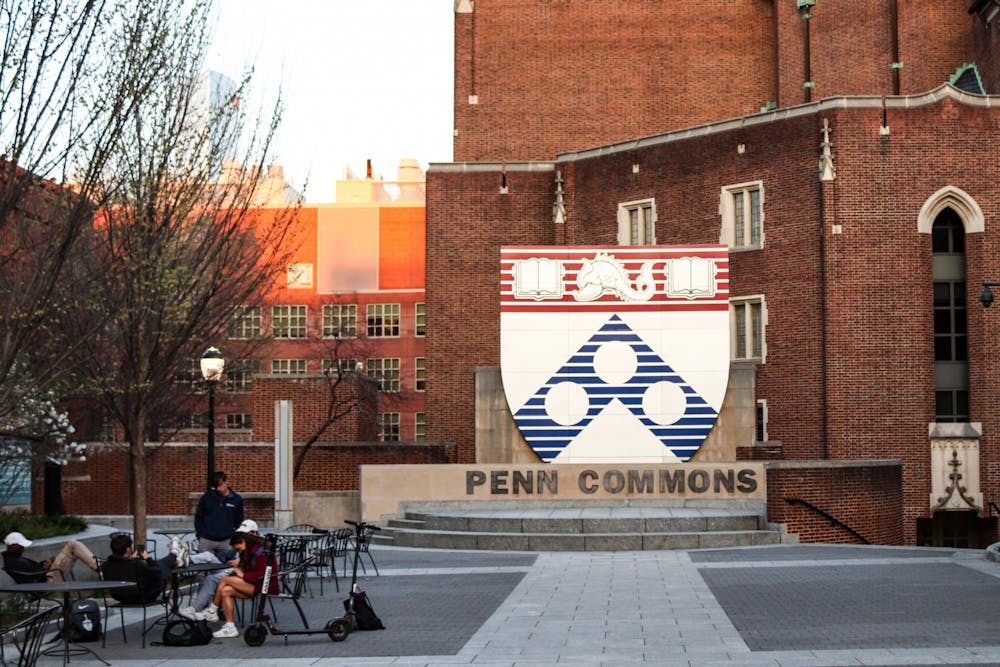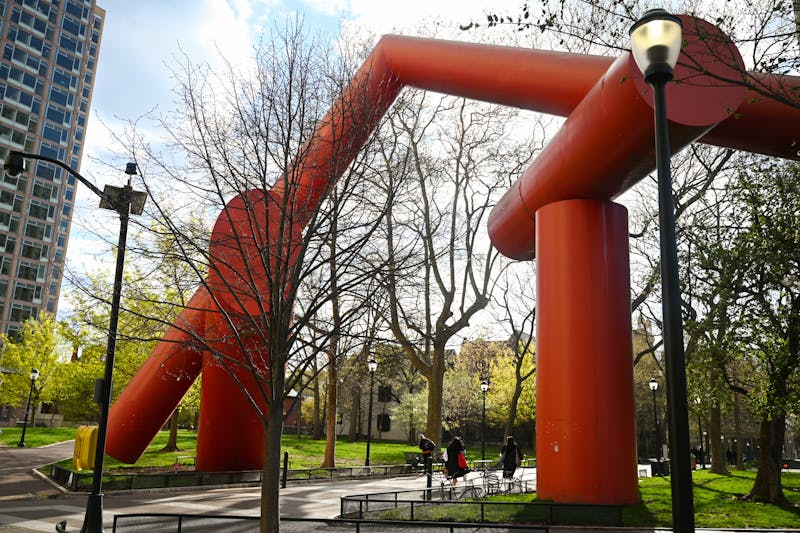
You might have scoffed at your aunt last week when she posted on Facebook about this amazing new superfood smoothie powder that's “definitely not a multi-level marketing scheme, thank you very much.” But in the end, the joke is on you: you’re a student at the University of Pennsylvania, and you’re roped in the longest and one of the most expensive marketing schemes you’ll ever bear witness to.
I don’t mean to say that college is worthless — there are undeniably countless material benefits to attending college (even if degrees aren’t necessarily guarantors of future jobs). Everyone should have access to higher education, and we’re privileged to be attending a school with resources and weight to its name. But after reading that Penn is increasing tuition by 4% — the highest hike in recent history — I can’t help but wonder if I’m being scammed.
You can think of tuition as a transaction: you pay Penn, they give you an education. You can also think of it as an investment. The more money a student puts into their education, the more they will eventually be worth (and, of course, it goes the other way around — the more a student’s labor is worth, the more Penn will receive in alumni donations down the line).
When I started at Penn in 2020, the total cost of attendance was $76,826. Now, it’s $84,600, up by almost $8,000 — far outpacing both rates of wage growth and inflation. If a college education was truly transactional, I’d expect my education to increase in value by $8,000 (or, at the very least, have a vastly expanded financial aid program). Tuition hikes are indicative of an Ourobouran economy, one that is going to keep devouring profit while still choking on its last bite. Post-secondary education feels absurd; we submit checks far beyond what our families can afford only to be taught by a graduate student that can also barely afford their own rent.
The quality of education or access to resources at Penn isn’t improving, yet we’re still expected to forgive for its shortcomings. In appearances, it seems like we’re getting something for our money, even though we're being sold an unfinished product that squeezes as much money as it can from us before the four years are up.
It’s only natural that Penn is defrauding its students. In all fairness, fraud is the Ivy League’s legacy — and Penn is leading the charge. Even if we ignore the less than favorable histories of Penn’s more famous alumni — including a certain alumnus currently being tried for 34 felonies — we find fraud, both overt and discreet, peppered throughout Penn’s history. Charlie Javice, a 2013 Wharton graduate, is being sued by J.P. Morgan. They allege she paid a data science professor $18,000 to fabricate a list of nearly 4 million names in order to make her financial aid application assistance company appear more popular and profitable than it was. Ashik Desai, a Wharton MBA graduate, was recently charged in a $1 billion dollar fraud scheme for faking data and deceiving clients in healthcare technology company Outcome Health.
Unlike what the headlines would lead you to believe, Javice, Desai and others aren’t exactly aberrations from the otherwise squeaky clean business world. Fraud oils the gears of capitalism — capital needs to unfairly compensate workers for their labor in order to turn a profit. It needs to promise endless returns while also contributing to an endless boom-and-bust cycle, and it needs to promise opportunity and class mobility to maintain its spotless mythology. Delineations between what is ethical and what is not in the business world are entirely arbitrary lines drawn in the sand to give the appearance of at least some law and order within the free market. Javice and Desai, and even Trump, were just a little too good at playing the game.
Just as the lines are drawn in the sand for Desai, Javice, and others, tuition increases are wholly arbitrary. Penn claims to be a non-profit university, but considering the highly corporatized university market, this is a bit hard to believe. For decades, policymakers have advanced the idea that education is not a public good, but a private one — a privilege afforded to those who can pay for it. This was essential in expanding the highly profitable student loan market, and since the late 1970s, the cost of education has increased by 1120%, while college endowments, including Penn’s, have been skyrocketing.
So, all things considered, we can’t be shocked at the rise of things like ChatGPT in academic settings like Penn. When tuition increases and the quality of education doesn’t, students are expected to make up for their education’s shortcomings. It’s not that students are lazy or unoriginal, but we’ve started to recognize, even implicitly, the absurdity of the economic relationship between a student and their university. Whether we pay 4% more for tuition, or whether we cheat our way through all of our classes, we’re still getting the same degree in the end. Overworked and undersupported, it’s easier to take the path of least resistance.
Penn functions because it launders wealth as merit; those who can afford it, win. So the ubiquity of fraud, cheating, and deception at Penn is no surprise. We’re engaged in the world’s most pervasive fraud scheme, and in the end, fraud goes both ways.
TAJA MAZAJ is a College junior studying political science from Skippack, Pa. Her email is tajam@sas.upenn.edu.
The Daily Pennsylvanian is an independent, student-run newspaper. Please consider making a donation to support the coverage that shapes the University. Your generosity ensures a future of strong journalism at Penn.
Donate







